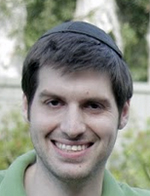
SAN DIEGO — A newly published paper co-authored by a San Diego State University professor and commissioned by a Jewish foundation provides recommendations on best practices for triage guidelines during the coronavirus crisis.
SDSU Assistant Professor of Philosophy Dr. Joseph Stramondo is one of the three authors of the Boston-based Ruderman Family Foundation’s “Fair Resource Allocation During the COVID-19 Pandemic” report, which calls for the implementation of triage guidelines in a way that is as objective as possible amid the growing strain on the medical system.
Specifically, the authors recommend that medical facilities navigate an increasingly complex bioethical landscape by appointing a new team comprised of a critical care physician as a triage officer, a nurse with critical care experience, and a hospital administrator who would document the process and serve as a bridge to the organization’s management team. This proposed triage team should also include a representative from a disability advocacy organization, thereby “increasing public trust in the decisions that are made,” the paper suggests.
“Avoiding mistrust must be a central concern of triage efforts so that patients are not hesitant to seek treatment. To that end, transparency in exactly what the triage criteria are is also essential. Finally, it may even be worth building in (and publicly acknowledging) some kind of appeal and oversight process that reviews triage decisions to make sure that the teams are accurately implementing whatever protocol is being deployed,” states the paper.
According to SDSU’s website, “Professor Stramondo’s philosophical interests focus primarily on how social and political power shapes the institutions and practices of bioethics. Namely, he thinks, teaches, and writes about how various systems of oppression have influenced bioethical thought, education, and action in ways that are not always obvious. This broad area of scholarly interest has motivated several complementary threads of research that run through bioethics, feminist philosophy, philosophy of disability, neuroethics, social-political philosophy, normative ethics, philosophy of technology, and moral psychology.”
Stramondo’s co-authors on the new white paper are Dr. Dominic Sisti, Director of the Scattergood Program for the Applied Ethics of Behavioral Health Care at the University of Pennsylvania, and the Ruderman Family Foundation’s Dr. Hanna Shaul Bar Nissim, a Visiting Scholar at Brandeis University.
The study’s publication comes as several U.S. states have been accused of discriminatory practices on the treatment of people with disabilities, specifically in regard to the rationing of lifesaving medical equipment like ventilators. In addition to its recommended triage guidelines, the white paper analyzes the landscape surrounding people with disabilities and disaster medicine, attending to patients with disabilities who have medical conditions other than COVID-19, and visitation in hospitals and residential facilities.
“It is vital during the surge that will hit our hospitals at different times during the coronavirus pandemic, that we don’t as a matter of policy discount the lives of people with disabilities and other compromised populations,” said Jay Ruderman, President of the Ruderman Family Foundation. “A life is a life and while medical personnel may need to make very difficult decisions during triage situations, our society should not put a higher value on able-bodied patients over others. By doing so we will devalue ourselves as a society based on equal rights for all, but by caring for all regardless of preconceived notions of the value of the lives of people with compromised situations we will elevate ourselves as a society.”
Headquartered in Boston and Israel, the foundation describes itself as “an internationally recognized organization which advocates for the full inclusion of people with disabilities in our society” and “supports effective programs, innovative partnerships and a dynamic approach to philanthropy in advocating for and advancing the inclusion of people with disabilities throughout America.”
“Guided by our Jewish values, we advocate for and advance the inclusion of people with disabilities throughout our society; strengthen the relationship between Israel and the American Jewish Community; and model the practice of strategic philanthropy worldwide,” the foundation explains in its mission statement. “We operate as a non-partisan strategic catalyst in cooperation with government, private sectors, civil society, and philanthropies.”
*
La Jolla, California, based public relations executive Jacob Kamaras is a former editor-in-chief of the Jewish News Syndicate (JNS). He is an active member at Adat Yeshurun Synagogue.